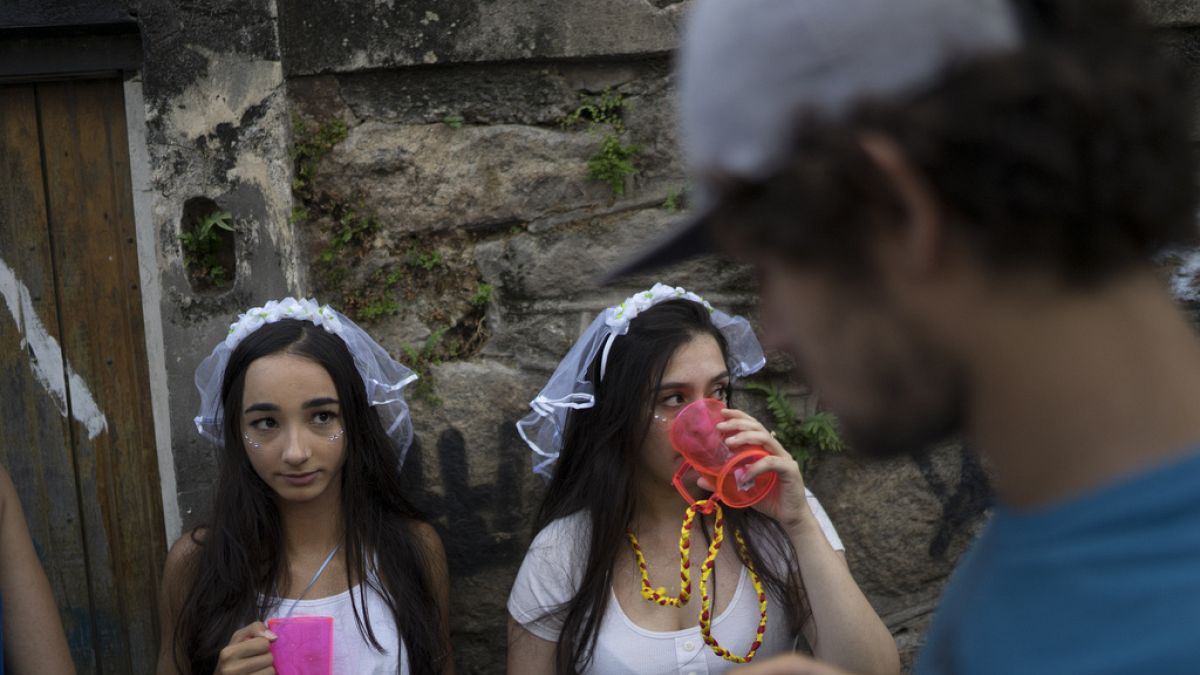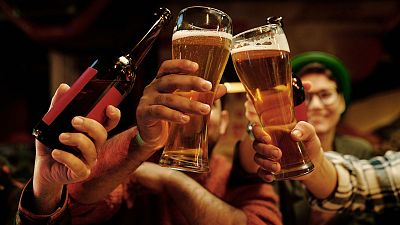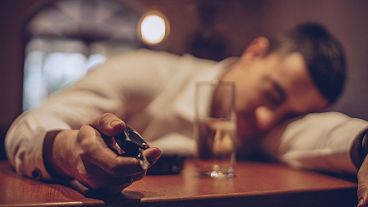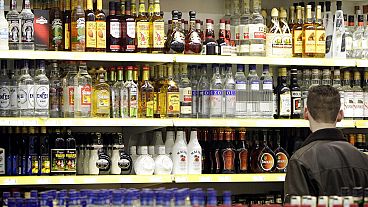Boosted by healthier lifestyles and the influence of social media, more young people are now embracing mindful drinking and they're increasingly aware of what and how much booze they consume.
Christmas is a time for celebration; Family, friends or work gatherings... Alcohol consumption skyrockets during the holidays, but it seems a growing number of young people are switching from drinking to their heart's content to drinking wisely. It's called mindful drinking: being more aware of how much and how you drink.
According to the WHO, heavy episodic drinking among Europeans under 25 has fallen more than 10 points since the year 2000.
Young people are taking greater care of their physical and mental health, and also their personal image. Alcohol does not fit into a healthier lifestyle, so they are embracing other types of leisure.
When vomiting goes viral
"It's a little embarrassing. It's a bit of a 'grinch' to see yourself in situations... Extreme drunkenness... like you're being recorded and then it goes viral... I don't know if you're more aware of where you are, who you're with, and what you're doing," says Fernanda Galleguillos, a 26-year-old student, referring to the growing social awareness of alcohol consumption and the detrimental effects of excessive drinking.
"Sometimes you ask yourself, 'Why am I drinking? A lot of times we're drinking because it's part of the environment... Do I drink because I like it? Luckily my environment respects it. There's a bit of a clash with other generations, but fortunately I'm in a circle where we're all in the same gaze," adds Galleguillos.
Young people, like Galleguillos, are now more concerned with taking care of their mental health, their body and their personal image, opting for other types of leisure. "I prioritize other things in my life, like making a plan in the morning, which if I had a hangover, I probably wouldn't do it," says Galleguillos.
New Lifestyles
"It's a broader trend, which has to do with lifestyles. We see more and more people concerned about food, currents for example vegans or vegetarians... Active lifestyles, sports... And moderate alcohol consumption, or not drinking directly, fits perfectly with this trend," explains José Blázquez, coordinator of the marketing degree at the European University of Madrid.
The bar, Blázquez points out, is no longer the point of socialization par excellence, as was the case with other generations. Young people have other meeting places; many of them virtual.
"Now with social media you can be socializing through your mobile, and you can be at home; And that away from the bar may have contributed to a reduction in consumption," he adds.
In Spain, 15% of those under the age of 24 choose not to drink, although they still face social pressure. Alcohol is still ubiquitous at social gatherings. It is the most widely consumed psychoactive substance in Europe, and Spain is among the five countries that drink the most on the continent.
"When you say you don't drink, they always ask you why. You say why I don't want to and they ask you again why. My excuse is always: I don't drink for health reasons, so no one bothers me anymore," confesses Nicky Cordoba, a 24-year-old student.
Trending times
Mindful drinking is a social phenomenon that floods social networks with hashtags. #mindfuldrinking, #sobercurious or #sinalcohol are some of the labels that accompany posts by influencers who promote recipes for mocktails, talk about the supposed inflammatory effects of the drink and recount their daily process to stop or reduce their consumption.
Blázquez believes that young people's relationship with social networks is intrinsically linked to the positive feedback they receive. "The challenges for them are important, and comments of 'I haven't drunk' or 'I've managed to reduce my alcohol consumption' become a valuable prize, a recognition from their followers and those with whom they share their experiences on social media."
The rise of cocktail bars offering non-alcoholic options reflects a shift in consumption trends, prioritizing quality over quantity. The market is responding with new products such as beer and non-alcoholic spirits or lower-proof beverages, such as blended soft drinks.
At La Bandida in Madrid, young people can enjoy a conventional cocktail and alternate it with a mocktail from its extensive menu of non-alcoholic options. Because after all, the best night is the one you remember.
Watch out full video report above for more information.



